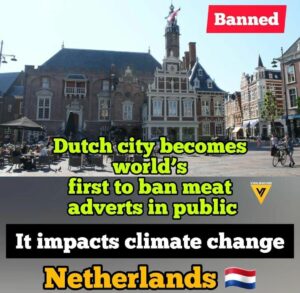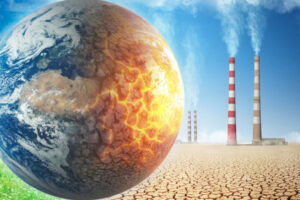How many animals get slaughtered every day?
Hundreds of millions of animals…
Water travels throughout your body carrying nutrients, oxygen, and wastes to and from your cells and organs. Water keeps your body cool as part of your body's temperature regulating system. Water cushions your joints, and protects your tissues and organs from shock and damage.
We are at a critical point in human history. Our choices no longer have just a local impact. Their effects are felt globally — on animals, people, and the environment.
FILE- In this March 13,…
 How many animals get slaughtered every day? – Hundreds of millions of animals get killed for meat every day. The scale of humanity’s meat consumption is enormous. 360 million tonnes of meat every year. This number is so large that… READ MORE
How many animals get slaughtered every day? – Hundreds of millions of animals get killed for meat every day. The scale of humanity’s meat consumption is enormous. 360 million tonnes of meat every year. This number is so large that… READ MORE Microplastics found in human blood for first time – Exclusive: The discovery shows the particles can travel around the body and may lodge in organs Damian Carrington Environment editor @dpcarringtonThu 24 Mar 2022 11.00 GMTShare Microplastic pollution has been detected… READ MORE
Microplastics found in human blood for first time – Exclusive: The discovery shows the particles can travel around the body and may lodge in organs Damian Carrington Environment editor @dpcarringtonThu 24 Mar 2022 11.00 GMTShare Microplastic pollution has been detected… READ MORE Most teens report feeling happy or peaceful when they go without smartphones, Pew survey finds – FILE- In this March 13, 2019, file photo Facebook, Messenger and Instagram apps are are displayed on an iPhone in New York. A group of 40 state attorneys general sent… READ MORE
Most teens report feeling happy or peaceful when they go without smartphones, Pew survey finds – FILE- In this March 13, 2019, file photo Facebook, Messenger and Instagram apps are are displayed on an iPhone in New York. A group of 40 state attorneys general sent… READ MORE Ads for climate-damaging meat set to be banned in this Dutch city – The Dutch city of Haarlem is putting a ban on meat advertisements in public spaces, in what is being hailed as a world first. The ban, which is hoped to… READ MORE
Ads for climate-damaging meat set to be banned in this Dutch city – The Dutch city of Haarlem is putting a ban on meat advertisements in public spaces, in what is being hailed as a world first. The ban, which is hoped to… READ MORE Meat Bad for You and Environment – People who consumed the least amount of red and processed meat products had reduced risk for heart disease, diabetes, and colorectal cancer, compared with those who consumed the most, according… READ MORE
Meat Bad for You and Environment – People who consumed the least amount of red and processed meat products had reduced risk for heart disease, diabetes, and colorectal cancer, compared with those who consumed the most, according… READ MORE What are the effects of climate change and global warming? – It is not scientifically possible to assign individual weather events to the current climate change, however, it can be statistically proven that global warming will increase the probability of extreme… READ MORE
What are the effects of climate change and global warming? – It is not scientifically possible to assign individual weather events to the current climate change, however, it can be statistically proven that global warming will increase the probability of extreme… READ MORE Climate Change and Public Health Home Page – Introduction This course covers the basic Public Health aspects of climate change and its impact on populations. It aims to inform about the dangers of climate change to Public Health… READ MORE
Climate Change and Public Health Home Page – Introduction This course covers the basic Public Health aspects of climate change and its impact on populations. It aims to inform about the dangers of climate change to Public Health… READ MORE PETA warns India to shut down illegal meat market, new epidemic could spread – Peta, an organization working for animals around the world, has demanded that the Indian government immediately shut down the illegal meat market following the corona virus. At the same time,… READ MORE
PETA warns India to shut down illegal meat market, new epidemic could spread – Peta, an organization working for animals around the world, has demanded that the Indian government immediately shut down the illegal meat market following the corona virus. At the same time,… READ MORE Global wildlife populations plummeted by two-thirds since 1970, says WWF report – The report also included pioneering modelling which showed that without further efforts to counteract habitat loss and degradation, global biodiversity will continue to decline. The World Wide Fund For Nature… READ MORE
Global wildlife populations plummeted by two-thirds since 1970, says WWF report – The report also included pioneering modelling which showed that without further efforts to counteract habitat loss and degradation, global biodiversity will continue to decline. The World Wide Fund For Nature… READ MORE If you keep cutting down forests, killing animals, there will be an epidemic : United Nations – A report released by the United Nations warns that if the deforestation and killing of animals continues, many epidemics, such as coronavirus, will follow. Earthlings must be prepared for that.… READ MORE
If you keep cutting down forests, killing animals, there will be an epidemic : United Nations – A report released by the United Nations warns that if the deforestation and killing of animals continues, many epidemics, such as coronavirus, will follow. Earthlings must be prepared for that.… READ MOREWhat are the Causes of Climate change?
This climate change is because of human activity
The main causes of climate change are:
Humanity’s increased use of fossil fuels – such as coal, oil and gas to generate electricity, run cars and other forms of transport, and power manufacturing and industry
Deforestation – because living trees absorb and store carbon dioxide
Increasingly intensive agriculture – which emits greenhouse gases like methane and nitrous oxide.
Today’s industrialised countries –have built their economies on buring fossil fuels to provide electricity, transport and to develop industries. Developing countries are now beginning to do the same.
The Intergovernmental Panel on Climate Change, the United Nations Environment Program’s climate body, has said for over a decade that there is “unequivocal” evidence that the planet is warming and that the temperature increase is “very likely” due to human-made greenhouse gas emissions.
The IPCC does not carry out research itself but bases its assessment on peer reviewed and published scientific/technical literature.
The Panel is made up of 2500+ scientific expert reviewers, 800+ contributing authors, and 450+ lead authors from 130+ countries.
Over 97% of peer reviewed journal articles on climate science agree with the scientific consensus around climate change.
Humans are increasingly influencing the climate and the earth’s temperature by burning fossil fuels, cutting down forests and farming livestock.
This adds enormous amounts of greenhouse gases to those naturally occurring in the atmosphere, increasing the greenhouse effect and global warming.
The main driver of climate change is the greenhouse effect. Some gases in the Earth’s atmosphere act a bit like the glass in a greenhouse, trapping the sun’s heat and stopping it from leaking back into space and causing global warming.
Many of these greenhouse gases occur naturally, but human activity is increasing the concentrations of some of them in the atmosphere, in particular:
carbon dioxide (CO2)
methane
nitrous oxide
fluorinated gases
CO2 produced by human activities is the largest contributor to global warming. By 2020, its concentration in the atmosphere had risen to 48% above its pre-industrial level (before 1750).
Other greenhouse gases are emitted by human activity in smaller quantities. Methane is a more powerful greenhouse gas than CO2, but has a shorter atmospheric lifetime. Nitrous oxide, like CO2, is a long-lived greenhouse gas that accumulates in the atmosphere over decades to centuries.
Natural causes, such as changes in solar radiation or volcanic activity are estimated to have contributed less than plus or minus 0.1°C to total warming between 1890 and 2010.
Burning coal, oil and gas produces carbon dioxide and nitrous oxide.
Cutting down forests (deforestation). Trees help to regulate the climate by absorbing CO2 from the atmosphere. When they are cut down, that beneficial effect is lost and the carbon stored in the trees is released into the atmosphere, adding to the greenhouse effect.
Increasing livestock farming. Cows and sheep produce large amounts of methane when they digest their food.
Fertilisers containing nitrogen produce nitrous oxide emissions.
Fluorinated gases are emitted from equipment and products that use these gases. Such emissions have a very strong warming effect, up to 23 000 times greater than CO2.
The climate on Earth has been changing since it formed 4.5 billion years ago. Until recently, natural factors have been the cause of these changes. Natural influences on the climate include volcanic eruptions, changes in the orbit of the Earth, and shifts in the Earth’s crust (known as plate tectonics).
Over the past one million years, the Earth has experienced a series of ice ages, including cooler periods (glacials) and warmer periods (interglacials). Glacial and interglacial periods cycle roughly every 100,000 years, caused by changes in Earth’s orbit around the sun. For the past few thousand years, Earth has been in an interglacial period with a constant temperature.
However, since the Industrial Revolution in the 1800s, the global temperature has increased at a much faster rate. By burning fossil fuels and changing how we use the land, human activity has quickly become the leading cause of changes to our climate.
Some gases in the Earth’s atmosphere trap heat and stop it escaping into space. We call these ‘greenhouse gases’. These gases act as a warming blanket around the Earth, known as the ‘greenhouse effect’.
Greenhouse gases come from both human and natural sources. Gases like carbon dioxide, methane, and nitrous oxide naturally occur in the atmosphere. Others, such as chlorofluorocarbons (CFCs), are only produced by human activity.
When short-wave radiation from the sun reaches Earth, most of it passes straight through and hits the surface. The Earth absorbs most of this radiation and gives off longer-wavelength infrared radiation.
The greenhouse gases absorb some of this infrared radiation, instead of it passing straight out into space. The atmosphere then emits radiation in all directions, sending some of it back to the surface, causing the planet to heat up. This process is known as the ‘greenhouse effect’.
The greenhouse effect is critical to our survival. In fact, without greenhouse gases, Earth would be about 30 degrees colder than it is today. Without greenhouse gases and their warming effect, we wouldn’t be able to survive.
However, since the Industrial Revolution, we’ve been adding more and more greenhouse gases into the air, trapping even more heat. Instead of keeping Earth at a warm, stable temperature, the greenhouse effect is heating the planet at a much faster rate. We call this the ‘enhanced greenhouse effect’ and it’s the main cause of climate change.
When looking at all the evidence, there is a large scientific consensus that humans are the leading cause of climate change. In their latest report, the Intergovernmental Panel on Climate Change stated unequivocally that human activity is the cause of global warming.
Natural climate cycles can change the temperature of Earth, but the changes we are seeing are happening at a scale and speed that natural cycles cannot explain. These cycles affect the global temperature for years, or sometimes just months, not the 100 years that we have observed. Meanwhile, longer-term changes like Milankovitch cycles and solar irradiance take thousands and thousands of years.
There are lots of things that affect climate change, but the evidence is irrefutable. Human activity, such as burning fossil fuels and changing how we use the land, is the leading cause of climate change.
There is a strong scientific consensus that the Earth is warming and that this warming is mainly caused by human activities. This consensus is supported by various studies of scientists’ opinions and by position statements of scientific organizations, many of which explicitly agree with the Intergovernmental Panel on Climate Change (IPCC) synthesis reports.
Nearly all actively publishing climate scientists (97–98%) support the consensus on anthropogenic climate change and the remaining 2% of contrarian studies either cannot be replicated or contain errors.A 2019 study found scientific consensus to be at 100%.
Global average temperature datasets from NASA, NOAA, Berkeley Earth, and meteorological offices of the U.K. and Japan, show substantial agreement concerning the progress and extent of global warming: pairwise correlations range from 98.09% to 99.04%.
Consensus points
The current scientific consensus is that:
Earth’s climate has warmed significantly since the late 1800s.
Human activities (primarily greenhouse gas emissions) are the primary cause.
Continuing emissions will increase the likelihood and severity of global effects.
People and nations can act individually and collectively to slow the pace of global warming, while also preparing for unavoidable climate change and its consequences.
Several studies of the consensus have been undertaken. Among the most cited is a 2013 study of nearly 12,000 abstracts of peer-reviewed papers on climate science published since 1990, of which just over 4,000 papers expressed an opinion on the cause of recent global warming. Of these, 97% agree, explicitly or implicitly, that global warming is happening and is human-caused. It is “extremely likely” that this warming arises from “human activities, especially emissions of greenhouse gases” in the atmosphere. Natural change alone would have had a slight cooling effect rather than a warming effect.
This scientific opinion is expressed in synthesis reports, by scientific bodies of national or international standing, and by surveys of opinion among climate scientists. Individual scientists, universities, and laboratories contribute to the overall scientific opinion via their peer-reviewed publications, and the areas of collective agreement and relative certainty are summarised in these respected reports and surveys. The IPCC’s Fifth Assessment Report (AR5) was completed in 2014. Its conclusions are summarized below:
“Warming of the climate system is unequivocal, and since the 1950s, many of the observed changes are unprecedented over decades to millennia.”
“Atmospheric concentrations of carbon dioxide, methane, and nitrous oxide have increased to levels unprecedented in at least the last 800,000 years.”
Human influence on the climate system is clear. It is extremely likely (95–100% probability) that human influence was the dominant cause of global warming between 1951 and 2010.
“Increasing magnitudes of [global] warming increase the likelihood of severe, pervasive, and irreversible impacts.”
“A first step towards adaptation to future climate change is reducing vulnerability and exposure to present climate variability.”
“The overall risks of climate change impacts can be reduced by limiting the rate and magnitude of climate change”
Without new policies to mitigate climate change, projections suggest an increase in global mean temperature in 2100 of 3.7 to 4.8 °C, relative to pre-industrial levels (median values; the range is 2.5 to 7.8 °C including climate uncertainty).
The current trajectory of global greenhouse gas emissions is not consistent with limiting global warming to below 1.5 or 2 °C, relative to pre-industrial levels. Pledges made as part of the Cancún Agreements are broadly consistent with cost-effective scenarios that give a “likely” chance (66–100% probability) of limiting global warming (in 2100) to below 3 °C, relative to pre-industrial levels.